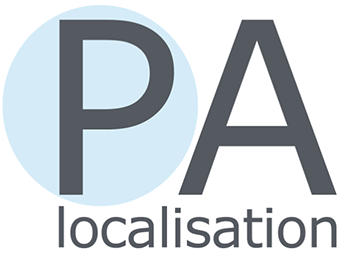The answer to this question depends on the intent and nature of your business’s website. However, before getting into that, here are the two definitions that will help us understand the answer better.
Translation: It refers to an exacting transmission of the meaning. While translating, the translator will convey the meaning of a particular sentence very precisely.
Localisation: It refers to the fine-tuning of the translated text and changing it to fit the contextual and cultural aspects of the language.
For instance, consider the translation of English to Mandarin. In the English language, the term ‘SALE’ refers to promotional discount offers. This word will be translated into Mandarin as the act of selling. To localise it, one will have to phrase it to ‘special price.’
Now that you have two words except for one, you may have to display these words differently. The language and graphical changes constitute localisation.

It Isn’t Only About the Words
The process of localisation requires different content, imagery, design, and focus. For instance, you can’t use the same images for winter fashion for India and Canada. That’s because the winter temperature in India and Canada varies greatly. Moreover, you’ll have to represent the cultural norms and ethnicities of the region as well.
Localisation can leverage the knowledge of cultural memes, current events, and humour that a simple translation may miss. It offers a chance to make your content appear as if it was created by someone well-versed in the culture than an outsider. This is especially important if you want to translate your website for different regions.
Here are examples of things that require localisation, but can be easily missed out:
Colloquialisms and Slang: Every culture comes with its own ways of speaking by using unique connotations and different figures of speech.
Humour: This is one of the most difficult forms of translation and localisation.
Units of measuring: While some regions use imperial, others use the metric system.
Dates: 23/06/21 represents 23 June 2021 in Europe, but June 23, 2021 in the US.

When Should You Use Localisation?
If you want your website to relate to the location’s culture it’s being displayed in. You should go for localisation. Similarly, if your content is heavy on marketing terms like ‘discounts,’ ‘promotions,’ etc., localisation will be of the essence.
In case your website offers a range of languages to choose from, you can go for simple translation. Similarly, if your content is general and doesn’t involve marketing or humour, a simple translation will suffice.
Get High-Quality Translation Services in the UK
PA Localisation consists of a robust team of language specialists dedicated to delivering impeccable localisation solutions to clients from different industries. We offer sector-specific services, like legal translation services, software localisation services, and medical manuscript writing services.
Our leading experts use innovative technology to work for clients ranging from the supply chain, business, healthcare, law, and more. Get in touch about your translation project, and we’ll assist you in the best possible way.

